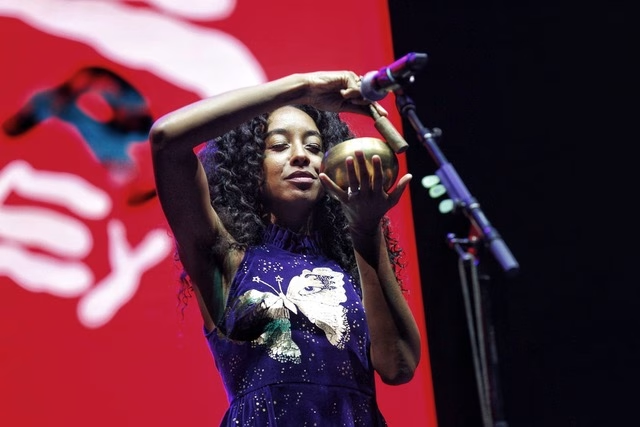Greenbelt measure audience travel emissions using ticketing postcode data from car travellers to calculate accurate CO2 emissions based on average cars and vans. Over 60% of car travellers choose to carbon balance their travel with onboard.earth.
Greenbelt have a policy of inviting artists who have tour dates around the time of the festival to prevent artists flying directly for Greenbelt festival where possible. Their shuttle buses from the train station to the festival site is freeto encourage people to use public transport; and they provide a carry truck service from public transport arrival points to the campsite.
In 2024 they launched a new initiative to encourage low-carbon travel choices: the Greenerbelter Wristband. This scheme rewards anyone who arrived at the festival by foot, bike, or public transport with a free drink on arrival. It was a hit with festivalgoers, with many sharing that it helped them feel seen and celebrated for making greener choices.
The wristband also became a great conversation starter, especially in a dedicated climate action venue, the Hot House, where —around 100 people joined a session to dig deeper into the challenges and barriers around sustainable travel to Greenbelt. Attendees were highly engaged, sharing stories and creative ideas for change, and helped the event team to understand how to better support and advocate for greener access in the future.
2024 also saw the launch of a new Green Fairies initiative. These volunteers act as friendly, informed touchpoints for festival-goers on all things environmental. They gather data on CO₂, waste, travel modes, and behaviours, collect questions and feedback, and help share the message that sustainability is a collective, joyful endeavour.
This growing commitment was recognised in early 2025, when Greenbelt was awarded the ‘Pied Piper’ award by A Greener Future, celebrating our proactive and creative communications around sustainable travel and climate action.
The team plan to continue and expand the wristband and Green Fairies in 2025 and beyond—exploring new ways to reward and spotlight other positive green behaviours, like using electric vehicles.
This case study is part of the Green Travel and Transport Guide for Festivals and Events 2025 – Download the guide>>

